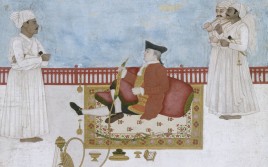Each trimester at Ondas the English classes write, produce and record an original radio program. This activity is not only fun and collaborative; it also helps to improve pronunciation, grammar, spontaneity, confidence, and overall speaking skills.


- The first step in this creative process is brainstorming, or coming up with the main idea, subtopics and a format as a class.

- Next, we will partner up and come up with an outline for each subtopic.
- Then, partners will work together to write a rough draft, or first attempt at the script.
- The next step is peer editing. We will correct grammatical and stylistic mistakes as a class in order to improve and perfect the content.
- After that, we will practice reading aloud, pronunciation and delivery to get our timing down.
- When we are ready, we will head to the studio and record our radio program, adding sound effects and background music.
- The final step is listening to the finished product and critiquing our pronunciation and delivery. Listening to our own voices, while strange, helps to improve our communicative skills.
- Remember, have fun with it! The radio program is a great momento of all your hard work throughout the course.
PS. Did you know that Ondas has it´s very own radio station? Check it out here: Ondas Radio

